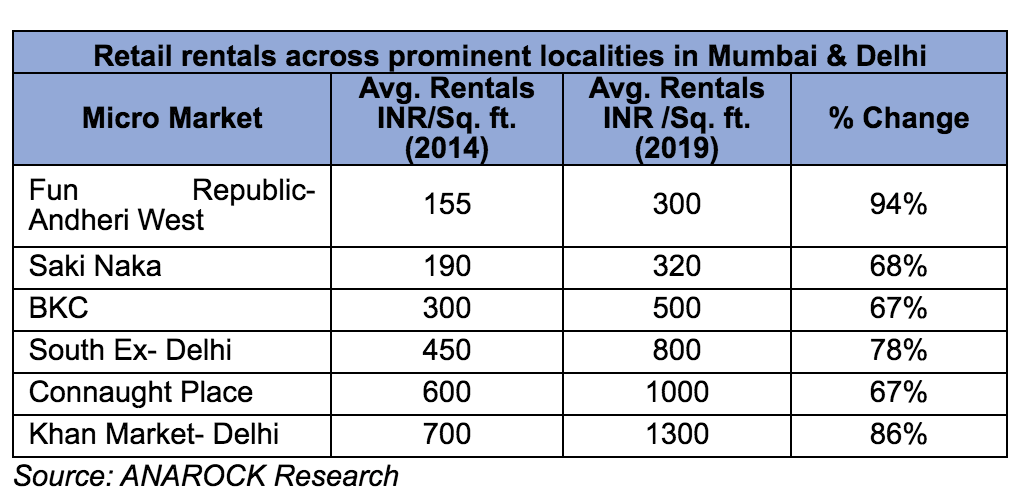Rising real estate rentals, diminishing brand loyalty among millennials and rising operating costs in metros have been brewing trouble for innumerable cafes operating across India. Unable to survive the heat, many coffee shops are compelled to shut shop within 18 months into the business.
For instance, rentals - as a percentage of operating costs - have nearly doubled in the last few years eating away almost 15-20% of their overall revenue on an average - in prime locales, they can go as high as 25%. To make matters worse, the rise of tea bars such as Chai Point and Chaayos is also eating into the traditional coffee-led café segment.

Necessity – The Mother of Reinvention
Given the changing dynamics and brands facing a deluge of competition, it is imperative that cafes remain upbeat, creative and ahead of the pack. Their new-age millennial customers are also constantly looking for more. This has given rise to the co-working culture in coffee bars or cafes, leading to a stupendous rise in the number of not only the usual coffee chains but also concept cafes or bistros across cities.
To keep their business afloat, cafes are continuously re-strategizing their business and need to be at their creative best. For instance, in Delhi, cafes such as Social Offline and Flyp@MTV were regular cafes wherein around 45-50% of the seats remained vacant during the day. They have now reinvented themselves and not only turned their establishments into café-cum-coworking hubs but also transformed into full-blown bars later in the evening.
This strategy adroitly wires into the quintessential millennial ethos of working hard and partying harder. It is the time-honoured formula of maximum utilization of existing resources with an aggressively creative twist.
The widespread opportunities for such reinvention also help them to re-establish their brands. From mere hang-out joints, many cafes are becoming hubs where the millennials work from, with the perfect chill ambience, hi-tech facilities and free Wi-fi – with the added benefit of F&B, which enables them to stretch their working hours painlessly and in style.
Not an Easy Transition
For cafés, this would appear to be a highly commendable capacity planning strategy. However, achieving such a metamorphosis is not as easy as one may think. There are several challenges to achieving successful conversion:
- Space constraints - For many cafes, transforming into co-working hubs will require additional space – and scaling up is not always feasible, especially in the CBD and SBD areas where cafés invariably strive to operate in.
- Location, location, location - The success of this new formula also depends on the location of the property. For a co-working space to operate with a minimum vacancy, the location of the centre/cafe must be prime. ANAROCK research indicates that co-working centres located in CBD areas have the least vacancy, while those in less central areas fail to attract footfalls.
- Significantly higher investments - Such cafes will have to invest a lot more than in mere swankiness. Tech-savvy millennials want to work out of completely technologically-enabled facilities offering both wired and non-wired internet connectivity, as well as state-of-art infrastructure.
- Parking – Garden-variety cafes can operate without a lot of reserved parking spaces as they tend to depend significantly on walk-in customers in the immediate neighbourhood. However, the game gets real when they transition into coworking – they need more parking spaces if they want to increase their base of working professionals.
- Operating permits - The licenses for setting up a café (health trade, F&B, playing music/video, etc.) are already tedious to obtain. If an establishment wants to turn itself into a cafe-cum-coworking hub, it will need to get additional permits since these are in a way similar to office spaces.
- Cybersecurity - There will be a considerable onus on ensuring safety and also cybersecurity within the premises because co-working exposes a business to several risks. For companies dealing with high volumes of confidential data, sharing space with external places such as cafes can be potentially challenging. Today, cybersecurity is a major strategic challenge for any organisation, and café-cum-coworking spaces must invest in reducing this risk.
'Coworking cafes' can be the ideal launchpad for start-ups - but eventually, such firms will require more professional, formal, secure and safe business environment at a reasonable cost. Cafes with co-working options are essentially informal spaces where one can begin the journey. However, as their business progresses, more organized and dedicated coworking spaces are logically the next level for any start-up - of course, at a higher cost.





Leave your comments
Post comment as a guest